- Home
- William Shakespeare
The Complete Works of William Shakespeare In Plain and Simple English (Translated)
The Complete Works of William Shakespeare In Plain and Simple English (Translated) Read online
William Shakespeare’s
The Complete Works of Shakespeare
In Plain and Simple English
BookCaps Study Guides
www.bookcaps.com
© 2013. All Rights Reserved.
Contents
About This Series
Histories
King John
King Richard the Second
King Richard III
Henry IV: Part One
Henry IV: Part Two
Henry V
Henry VI: Part 1
Henry VI: Part 2
Henry VI: Part 3
King Henry VIII
Comedies
All’s Well That Ends Well
As You Like It
The Comedy of Errors
Love’s Labour’s Lost
Measure for Measure
The Merchant of Venice
The Merry Wives of Windsor
A Midsummer Nights Dream
Much Ado About Nothing
Pericles, Prince of Tyre
The Taming of the Shrew
The Tempest
Twelfth Night
The Two Gentlemen of Verona
Two Noble Kinsmen
The Winter Tale
Tragedies
Anthony and Cleopatra
Coriolanus
Cymbeline
Hamlet
Julius Caesar
King Lear
Macbeth
Othello
Romeo and Juliet
Timon of Athens
Titus Andronicus
Troilus and Cressida
Sonnets
The “Classic Retold” series started as a way of telling classics for the modern reader—being careful to preserve the themes and integrity of the original. Whether you want to understand Shakespeare a little more or are trying to get a better grasps of the Greek classics, there is a book waiting for you!
William Shakespeare’s
In Plain and Simple English
In Plain and Simple English
KING JOHN
PRINCE HENRY, his son
ARTHUR, DUKE OF BRITAINE, son of Geffrey, late Duke of
Britaine, the elder brother of King John
EARL OF PEMBROKE
EARL OF ESSEX
EARL OF SALISBURY
LORD BIGOT
HUBERT DE BURGH
ROBERT FAULCONBRIDGE, son to Sir Robert Faulconbridge
PHILIP THE BASTARD, his half-brother
JAMES GURNEY, servant to Lady Faulconbridge
PETER OF POMFRET, a prophet
KING PHILIP OF FRANCE
LEWIS, the Dauphin
LYMOGES, Duke of Austria
CARDINAL PANDULPH, the Pope's legate
MELUN, a French lord
CHATILLON, ambassador from France to King John
QUEEN ELINOR, widow of King Henry II and mother to
King John
CONSTANCE, Mother to Arthur
BLANCH OF SPAIN, daughter to the King of Castile
and niece to King John
LADY FAULCONBRIDGE, widow of Sir Robert Faulconbridge
Lords, Citizens of Angiers, Sheriff, Heralds, Officers,
Soldiers, Executioners, Messengers, Attendants
SCENE:
England and France
KING JOHN's palace
Enter KING JOHN, QUEEN ELINOR, PEMBROKE, ESSEX, SALISBURY, and
others,
with CHATILLON
KING JOHN.
Now, say, Chatillon, what would France with us?
Now tell me, Chatillon, what does the King of France want from me?
CHATILLON.
Thus, after greeting, speaks the King of France
In my behaviour to the majesty,
The borrowed majesty, of England here.
After the greeting this is what the King of France
says, through me as his representative,
to the counterfeit royalty of England.
ELINOR.
A strange beginning- 'borrowed majesty'!
This is a strange beginning–“counterfeit royalty"!
KING JOHN.
Silence, good mother; hear the embassy.
Quiet, good mother; listen to what it says.
CHATILLON.
Philip of France, in right and true behalf
Of thy deceased brother Geffrey's son,
Arthur Plantagenet, lays most lawful claim
To this fair island and the territories,
To Ireland, Poictiers, Anjou, Touraine, Maine,
Desiring thee to lay aside the sword
Which sways usurpingly these several titles,
And put the same into young Arthur's hand,
Thy nephew and right royal sovereign.
Philip of France, rightly and acting faithfully on behalf
of the son of your dead brother Geoffrey,
Arthur Plantagenet, makes a legally justified claim
to this fair island and its dependencies,
Ireland, Poitiers, Anjou, Touraine, Maine,
asking you to withdraw the forces
which falsely hold these titles,
and to hand them over into the hands of young Arthur,
your nephew and the true king.
KING JOHN.
What follows if we disallow of this?
What will happen if we disagree with this?
CHATILLON.
The proud control of fierce and bloody war,
To enforce these rights so forcibly withheld.
You will have to face a fierce and bloody war,
for the return of these rights which you withhold by force.
KING JOHN.
Here have we war for war, and blood for blood,
Controlment for controlment- so answer France.
We can answer with war for war, blood for blood,
force for force–tell France that.
CHATILLON.
Then take my king's defiance from my mouth-
The farthest limit of my embassy.
Then accept the defiance of the King from me–
that's as far as my remit allows me.
KING JOHN.
Bear mine to him, and so depart in peace;
Be thou as lightning in the eyes of France;
For ere thou canst report I will be there,
The thunder of my cannon shall be heard.
So hence! Be thou the trumpet of our wrath
And sullen presage of your own decay.
An honourable conduct let him have-
Pembroke, look to 't. Farewell, Chatillon.
Take mine to him, and so leave peacefully;
you must be like lightning, warning France;
because before you can speak to him I will be there,
you shall hear the thunder of my cannons.
So go! You can be the warning of my anger
and the dismal announcer of your own downfall.
Make sure he has a good escort–
see to it, Pembroke. Farewell Chatillon.
Exeunt CHATILLON and PEMBROKE
ELINOR.
What now, my son! Have I not ever said
How that ambitious Constance would not cease
Till she had kindled France and all the world
Upon the right and party of her son?
This might have been prevented and made whole
With very easy arguments of love,
Which now the manage of two kingdoms must
With fearful bloody issue arbitrate.
What about that, my son! Haven't I always said
that the ambitious Constance would not stop
until she had France and the whole world fighting
to support her son's rights and his followers?
This could have been avoided and put right
with very simple friendly behaviour,
and now the question of who rules two kingdoms
must be settled by terrible bloody war.
KING JOHN.
Our strong possession and our right for us!
We are in possession, and that means right is on our side!
ELINOR.
Your strong possession much more than your right,
Or else it must go wrong with you and me;
So much my conscience whispers in your ear,
Which none but heaven and you and I shall hear.
The strong grip you have is much more important than your rights,
if it isn't, you and I will be in trouble;
this is what I think deep down,
but nobody but you and God will hear it.
Enter a SHERIFF
ESSEX.
My liege, here is the strangest controversy
Come from the country to be judg'd by you
That e'er I heard. Shall I produce the men?
My lord, I have here the strangest disagreement
that I ever heard, with men come from the country
to have your judgement. Shall I bring them in?
KING JOHN.
Let them approach.
Exit SHERIFF
Our abbeys and our priories shall pay
This expedition's charge.
Yes, bring them in.
The abbeys and the priories will pay
for the cost of this war.
Enter ROBERT FAULCONBRIDGE and PHILIP, his bastard brother
What men are you?
Who are you?
BASTARD.
Your faithful subject I, a gentleman
Born in Northamptonshire, and eldest son,
As I suppose, to Robert Faulconbridge-
A soldier by the honour-giving hand
Of Coeur-de-lion knighted in the field.
I am a faithful subject of yours, a gentleman
born in Northamptonshire, and the eldest son,
I believe, of Robert Faulconbridge–
a soldier who was knighted on the battlefield
by Richard the Lionheart.
KING JOHN.
What art thou?
And who are you?
ROBERT.
The son and heir to that same Faulconbridge.
I am the son and heir of that same Faulconbridge.
KING JOHN.
Is that the elder, and art thou the heir?
You came not of one mother then, it seems.
He's older than you, and you are the heir?
So it seems you don't have the same mother.
BASTARD.
Most certain of one mother, mighty king-
That is well known- and, as I think, one father;
But for the certain knowledge of that truth
I put you o'er to heaven and to my mother.
Of that I doubt, as all men's children may.
We certainly share the same mother, mighty King–
that is well known–and, I think, the same father;
but to have that proved for certain
you would have to ask heaven and my mother.
I have doubts about that, as any person may.
ELINOR.
Out on thee, rude man! Thou dost shame thy mother,
And wound her honour with this diffidence.
Damn you, rude man! You are shaming your mother,
and insulting her honour with these doubts.
BASTARD.
I, madam? No, I have no reason for it-
That is my brother's plea, and none of mine;
The which if he can prove, 'a pops me out
At least from fair five hundred pound a year.
Heaven guard my mother's honour and my land!
Me, madam? No, I have no reason to do it;
that is what my brother says, not me;
if he can prove it he deprives me
of at least five hundred pounds a year.
May heaven protect the honour of my mother and my property!
KING JOHN.
A good blunt fellow. Why, being younger born,
Doth he lay claim to thine inheritance?
A good straightforward chap. Why, as he is the younger,
does he claim your inheritance?
BASTARD.
I know not why, except to get the land.
But once he slander'd me with bastardy;
But whe'er I be as true begot or no,
That still I lay upon my mother's head;
But that I am as well begot, my liege-
Fair fall the bones that took the pains for me!-
Compare our faces and be judge yourself.
If old Sir Robert did beget us both
And were our father, and this son like him-
O old Sir Robert, father, on my knee
I give heaven thanks I was not like to thee!
I don't know why, except that he wants the land.
He did once slander me by calling a bastard;
but whether I am legitimately born or not
I leave to the evidence of my mother;
but that I am nobly born, my lord–
may good come to those who created me!–
Compare our faces and judge for yourself.
If Sir Robert created us both
and was our father, and this son is like him,
oh old Sir Robert, father, I give heaven
thanks upon my knees that I don't look like you!
KING JOHN.
Why, what a madcap hath heaven lent us here!
Why, what a lunatic heaven has sent to us!
ELINOR.
He hath a trick of Coeur-de-lion's face;
The accent of his tongue affecteth him.
Do you not read some tokens of my son
In the large composition of this man?
He looks rather like the Lionheart;
his voice also sounds like him.
Can't you see some elements of my son
in this man's make up?
KING JOHN.
Mine eye hath well examined his parts
And finds them perfect Richard. Sirrah, speak,
What doth move you to claim your brother's land?
I've had a good look over him
and I think he's just like Richard. Speak, sir,
what makes you claim your brother's property?
BASTARD.
Because he hath a half-face, like my father.
With half that face would he have all my land:
A half-fac'd groat five hundred pound a year!
Because he has a profile like my father.
He thinks that profile should give him all my land:
that imperfect coin wants five hundred pounds a year!
ROBERT.
My gracious liege, when that my father liv'd,
Your brother did employ my father much-
My good lord, when my father was alive,
your brother often employed my father–
BASTARD.
Well, sir, by this you cannot get my land:
Your tale must be how he employ'd my mother.
Well, sir, you won't get my land like this:
you must explain how he employed my mother.
ROBERT.
And once dispatch'd him in an embassy
To Germany, there with the Emperor
To treat of high affairs touching that time.
Th' advantage of his absence took the King,
And in the meantime sojourn'd at my father's;
Where how he did prevail I shame to speak
-
But truth is truth: large lengths of seas and shores
Between my father and my mother lay,
As I have heard my father speak himself,
When this same lusty gentleman was got.
Upon his death-bed he by will bequeath'd
His lands to me, and took it on his death
That this my mother's son was none of his;
And if he were, he came into the world
Full fourteen weeks before the course of time.
Then, good my liege, let me have what is mine,
My father's land, as was my father's will.
And he once sent him as ambassador
to Germany, to discuss important matters
of the time with the Emperor.
The King took advantage of his absence,
staying at my father's place,
and I'm ashamed to say how he succeeded there;
but the truth is the truth: there were great swathes of land and sea
between my father and my mother
when this lively gentleman was conceived–
I've heard my father say that himself.
On his deathbed he left me his lands
in his will, and as he was dying he swore
that my mother's son was not his;
for if he were, he would've had to be born
fourteen weeks ahead of time.
So, my good Lord, let me have what is mine,
my father's land, as my father willed it.
KING JOHN.
Sirrah, your brother is legitimate:
Your father's wife did after wedlock bear him,
And if she did play false, the fault was hers;
Which fault lies on the hazards of all husbands

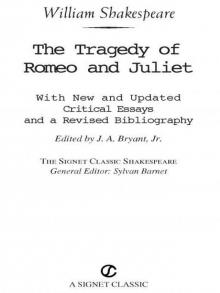 Romeo and Juliet
Romeo and Juliet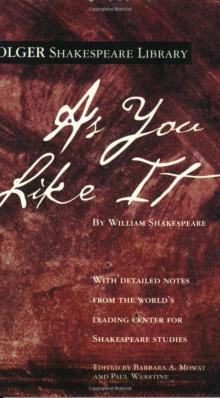 As You Like It (Folger Shakespeare Library)
As You Like It (Folger Shakespeare Library)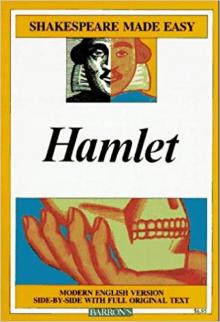 Hamlet
Hamlet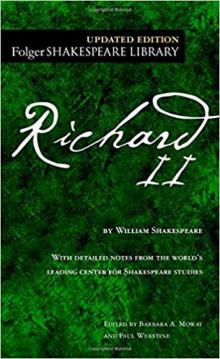 Richard II (Folger Shakespeare Library)
Richard II (Folger Shakespeare Library) Macbeth
Macbeth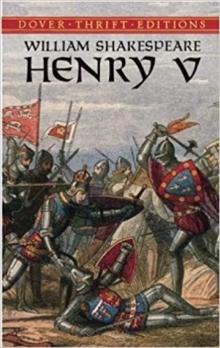 Henry V
Henry V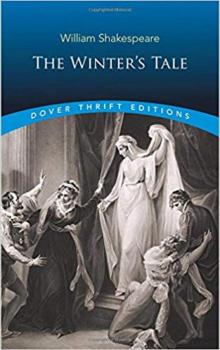 The Winter's Tale
The Winter's Tale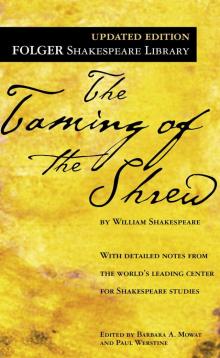 The Taming of the Shrew
The Taming of the Shrew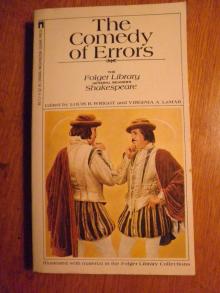 The Comedy of Errors
The Comedy of Errors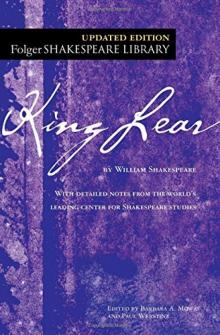 King Lear (Folger Shakespeare Library)
King Lear (Folger Shakespeare Library)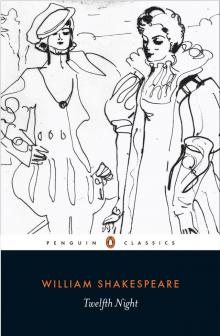 Twelfth Night
Twelfth Night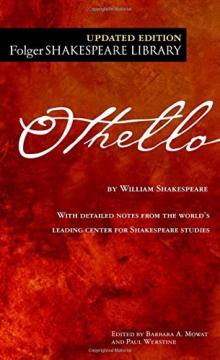 Othello
Othello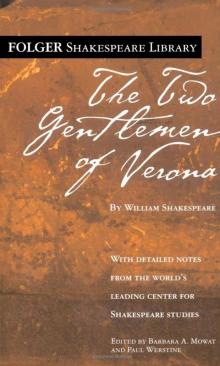 The Two Gentlemen of Verona
The Two Gentlemen of Verona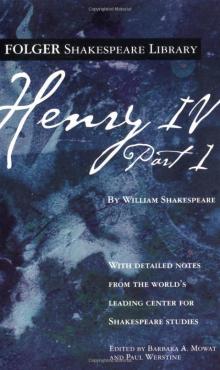 Henry IV, Part 1 (Folger Shakespeare Library)
Henry IV, Part 1 (Folger Shakespeare Library)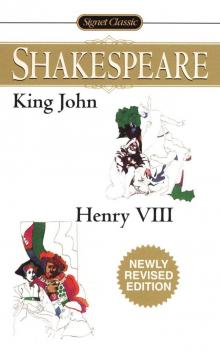 King John/Henry VIII (Signet Classics)
King John/Henry VIII (Signet Classics)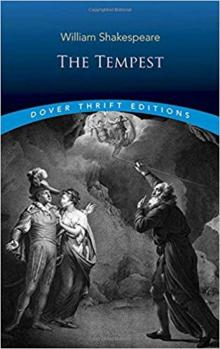 The Tempest
The Tempest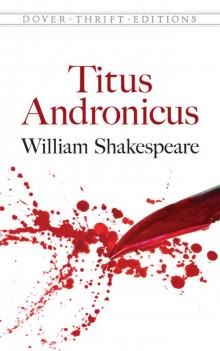 Titus Andronicus (Dover Publications)
Titus Andronicus (Dover Publications)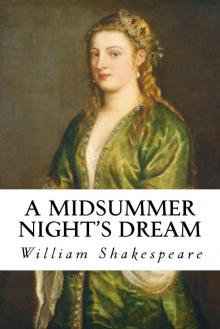 A Midsummer Night's Dream
A Midsummer Night's Dream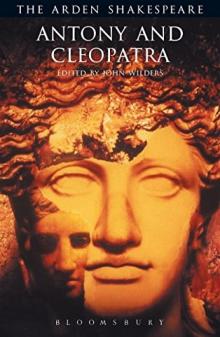 Antony and Cleopatra (Arden Shakespeare: Third Series)
Antony and Cleopatra (Arden Shakespeare: Third Series)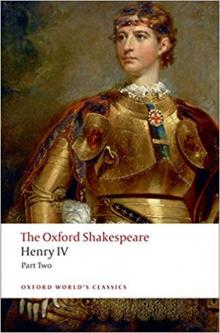 The Oxford Shakespeare: Henry IV, Part 2 (Oxford World's Classics)
The Oxford Shakespeare: Henry IV, Part 2 (Oxford World's Classics)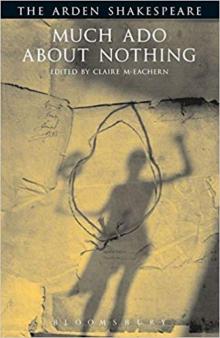 Much Ado About Nothing (Arden Shakespeare: Third Series)
Much Ado About Nothing (Arden Shakespeare: Third Series)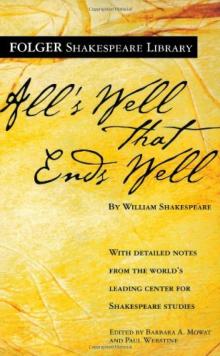 All's Well That Ends Well
All's Well That Ends Well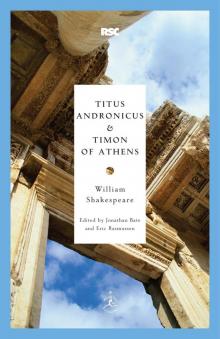 Titus Andronicus & Timon of Athens
Titus Andronicus & Timon of Athens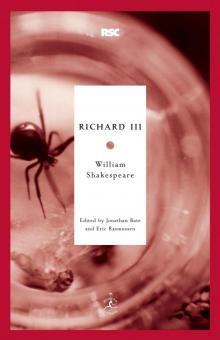 Richard III (Modern Library Classics)
Richard III (Modern Library Classics)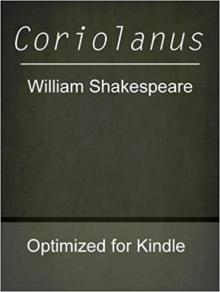 Coriolanus
Coriolanus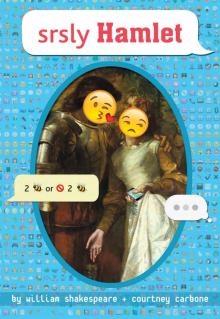 srsly Hamlet (OMG Shakespeare)
srsly Hamlet (OMG Shakespeare)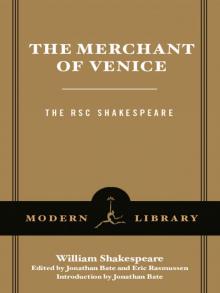 The Merchant of Venice
The Merchant of Venice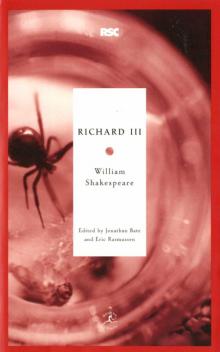 Richard III
Richard III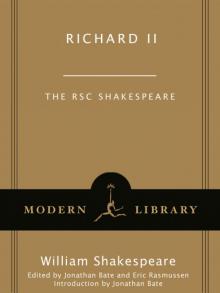 Richard II
Richard II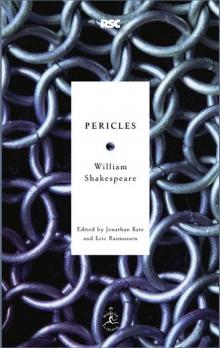 Pericles
Pericles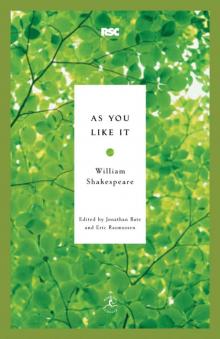 As You Like It
As You Like It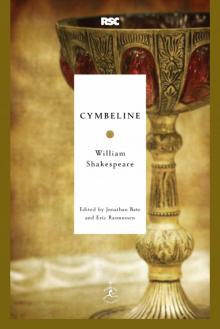 Cymbeline
Cymbeline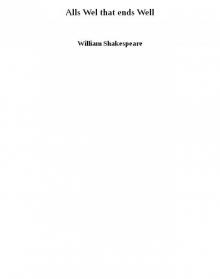 Alls Wel that ends Well
Alls Wel that ends Well YOLO Juliet
YOLO Juliet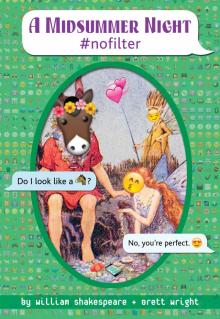 A Midsummer Night #nofilter
A Midsummer Night #nofilter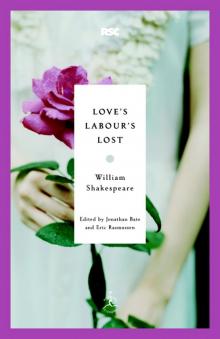 Love's Labour's Lost
Love's Labour's Lost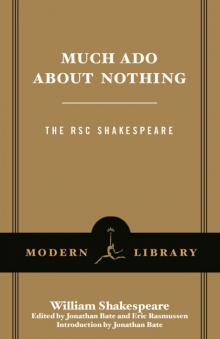 Much Ado About Nothing
Much Ado About Nothing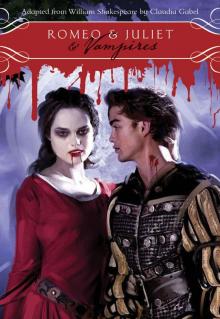 Romeo & Juliet & Vampires
Romeo & Juliet & Vampires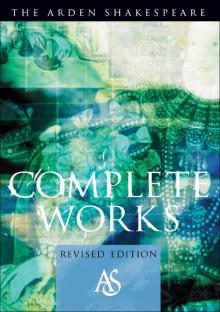 The Arden Shakespeare Complete Works
The Arden Shakespeare Complete Works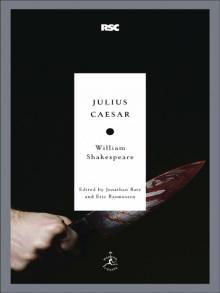 Julius Caesar
Julius Caesar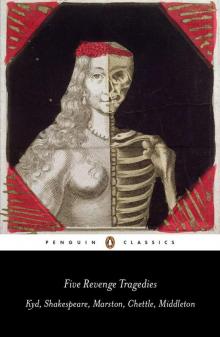 Five Revenge Tragedies: The Spanish Tragedy, Hamlet, Antonio's Revenge, The Tragedy of Hoffman, The Revenger's Tragedy (Penguin Classics)
Five Revenge Tragedies: The Spanish Tragedy, Hamlet, Antonio's Revenge, The Tragedy of Hoffman, The Revenger's Tragedy (Penguin Classics)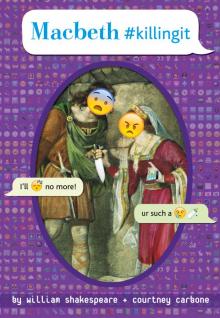 Macbeth #killingit
Macbeth #killingit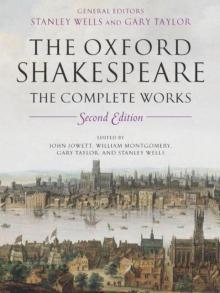 The Oxford Shakespeare: The Complete Works
The Oxford Shakespeare: The Complete Works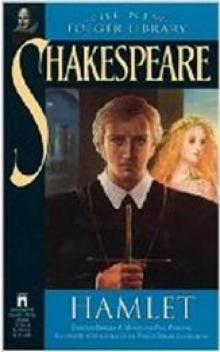 Hamlet, Prince of Denmark (Collins edition)
Hamlet, Prince of Denmark (Collins edition)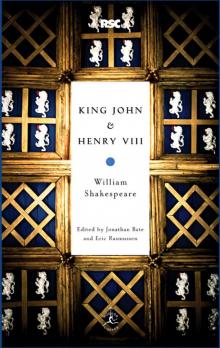 King John & Henry VIII
King John & Henry VIII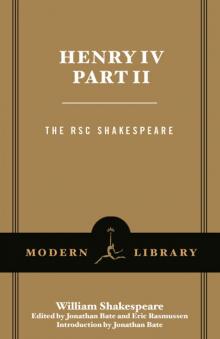 Henry IV, Part 2
Henry IV, Part 2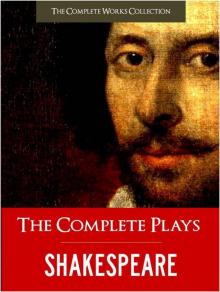 Complete Plays, The
Complete Plays, The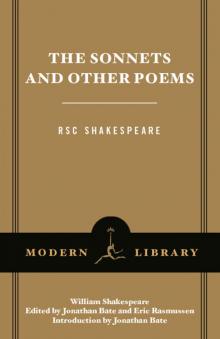 The Sonnets and Other Poems
The Sonnets and Other Poems Antony and Cleopatra
Antony and Cleopatra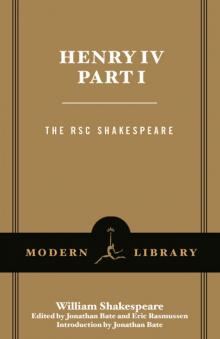 Henry IV, Part 1
Henry IV, Part 1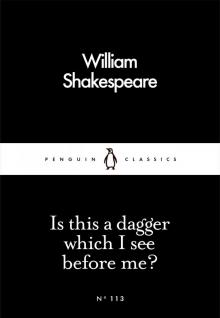 Is This a Dagger Which I See Before Me?
Is This a Dagger Which I See Before Me?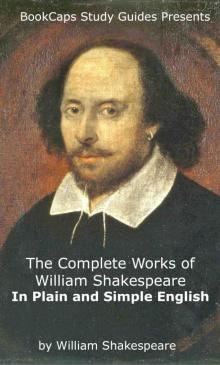 The Complete Works of William Shakespeare In Plain and Simple English (Translated)
The Complete Works of William Shakespeare In Plain and Simple English (Translated)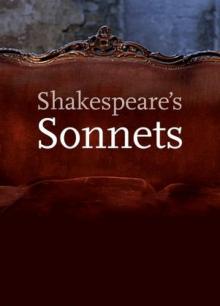 The Sonnets
The Sonnets